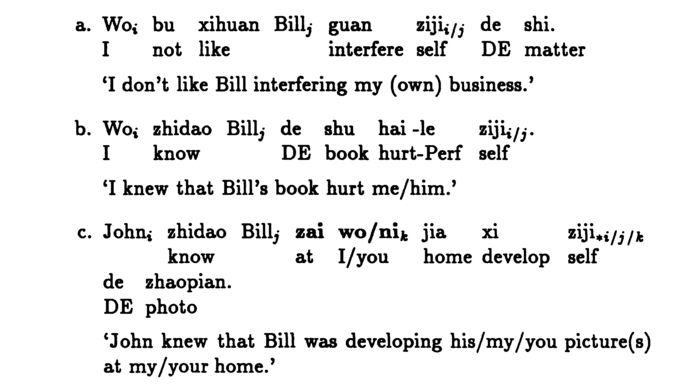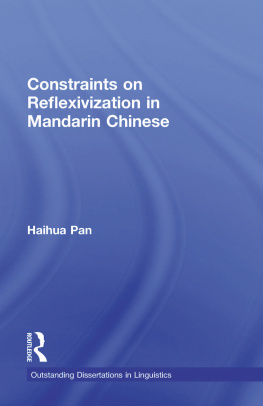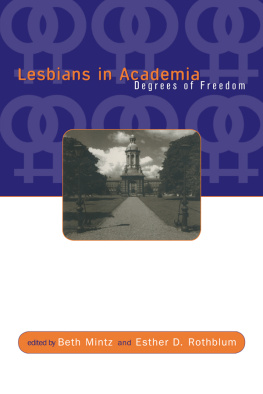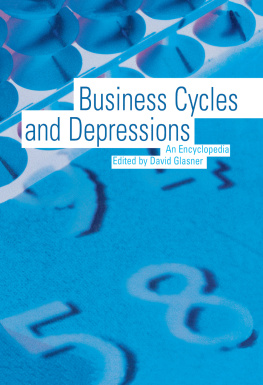Haihua Pan - Constraints on Reflexivization in Mandarin Chinese
Here you can read online Haihua Pan - Constraints on Reflexivization in Mandarin Chinese full text of the book (entire story) in english for free. Download pdf and epub, get meaning, cover and reviews about this ebook. year: 1997, publisher: Routledge, genre: Home and family. Description of the work, (preface) as well as reviews are available. Best literature library LitArk.com created for fans of good reading and offers a wide selection of genres:
Romance novel
Science fiction
Adventure
Detective
Science
History
Home and family
Prose
Art
Politics
Computer
Non-fiction
Religion
Business
Children
Humor
Choose a favorite category and find really read worthwhile books. Enjoy immersion in the world of imagination, feel the emotions of the characters or learn something new for yourself, make an fascinating discovery.
- Book:Constraints on Reflexivization in Mandarin Chinese
- Author:
- Publisher:Routledge
- Genre:
- Year:1997
- Rating:4 / 5
- Favourites:Add to favourites
- Your mark:
- 80
- 1
- 2
- 3
- 4
- 5
Constraints on Reflexivization in Mandarin Chinese: summary, description and annotation
We offer to read an annotation, description, summary or preface (depends on what the author of the book "Constraints on Reflexivization in Mandarin Chinese" wrote himself). If you haven't found the necessary information about the book — write in the comments, we will try to find it.
Haihua Pan: author's other books
Who wrote Constraints on Reflexivization in Mandarin Chinese? Find out the surname, the name of the author of the book and a list of all author's works by series.
Constraints on Reflexivization in Mandarin Chinese — read online for free the complete book (whole text) full work
Below is the text of the book, divided by pages. System saving the place of the last page read, allows you to conveniently read the book "Constraints on Reflexivization in Mandarin Chinese" online for free, without having to search again every time where you left off. Put a bookmark, and you can go to the page where you finished reading at any time.
Font size:
Interval:
Bookmark:

edited by
Laurence Horn
YALE UNIVERSITY
A GARLAND SERIES
Haihua Pan

First published 1997 by Garland Publishing, Inc.
Published 2013
by Routledge
2 Park Square, Milton Park, Abingdon, Oxon OX14 4RN
711 Third Avenue, New York, NY 10017 USA
Routledge is an imprint of the Taylor & Francis Group, an informa business
Copyright 1997 Haihua Pan
All rights reserved
Library of Congress Cataloging-in-Publication Data
Pan, Haihua, 1962
Constraints on reflexivization in Mandarin Chinese / Haihua Pan.
p. cm. (Outstanding dissertations in linguistics)
Includes bibliographical references and index.
ISBN 0-8153-2851-6 (alk. paper)
1. Chinese languageReflexives. 2. Chinese language Grammar I. Title. II. Series.
PL1234.P35 1997
495.1'5dc21
96-53126
to my wife,
Jane Q. Ouyang
and son,
Franklin
Mandarin ziji has challenged many syntacticians to probe for its properties and specifically its relationship to Binding Condition A (BCA), which dictates that an anaphor must be bound by a syntactically prominent (or c-commanding) noun phrase in a very local domain (Governing Category or GC). The basic strategy employed in most analyses is to try to show that BCA also applies to ziji , even though ziji apparently violates it by allowing long-distance binding.
Based on the textual search of large corpora on the usage of ziji , ben-ren/shen and their compound forms, this book claims that a semantic factor self-ascription and a discourse factor prominence play an essential role in the interpretation of Mandarin reflexives. Following the spirit of Baker (1995), which makes a fundamental distinction between syntactic binding and discourse prominence, this book argues for the separation of contrastive and noncontrastive reflexives. While members of the former class including ben-ren/shen, zishen , contrastive ziji and their compound forms are constrained by discourse prominence , members of the latter class including non-contrastive ziji and ta-ziji are constrained by either locality or self-ascription. The book further argues that two usages of non-contrastive ziji should be recognized. While the first usage, including ta-ziji , is constrained by locality and compatibility conditions, the other usage is regulated by self-ascription; that is, the self-ascription ziji is a de se anaphor, to borrow Lewis' terminology, and thus must be bound to the most prominent self-ascriber.
This book will also show that ben-ren/shen and their compound forms, being inherently contrastive, differ from ziji and its compound forms in the contexts accessible to them; the latter can access linguistic contexts only, but the former can also access utterance situations and world knowledge.
The Chinese reflexive ziji is a submerged rock on which universalists are liable to get shipwrecked. Expecting evidence in support of principles formulated on the basis of facts found in English, a universalist may feel elated as soon as he, or his research assistant who speaks Chinese, starts translating English examples into Chinese. The evidence seems readily apparent. But Chinese is such a flexible language that it is easy to make it do what other languages do, yet difficult to prevent it from doing what other languages are not supposed to do. All too easy, the evidence one has found to support a theory may be undermined by counterevidence. Such counterexamples would be uncovered only if the researcher would look in the right direction.
Looking back over the findings on reflexivization in Chinese during the past fifteen years, one wonders why it took us so long to discover the simple facts that should have been obvious at the outset. It took some linguists several years to convince others that ziji can be bound to an antecedent across a clause boundary. Once consensus was reached at this point, contention arose as to whether long-distance binding was the norm or an exception. It was argued and accepted by quite a few linguists working on this topic that long distance binding is limited to cases where the subject of the embedded clause and that of the matrix clause happen to have the same features of person, number, etc. With this understanding, theories were proposed making use of head movement or whmovement to explain why feature discrepancy can block coreference. Their objective was, obviously, to discipline the recalcitrant Chinese reflexive into behaving properly. Hopefully it could be shown that long-distance binding was more apparent than real. The illusion was shattered, however, by examples cited in Dr Pan's dissertation:

The sentences appeared as the results of his search of Chinese texts comprising a corpus of over 30 million characters. With the development of corpus linguistics, Corpus data are almost as easily available as linguists' introspection. There are more chances to derive a theory from collected facts than ever before. The study on Chinese reflexives is a good illustration that crucial facts may not occur to linguists' mind enabling insightful conjectures. The above examples are not the only ones extracted by Dr. Pan from his corpora that bear upon the formulation of theories on Chinese reflexivization. Among other surprises is that a Chinese reflexive is not even required to take an antecedent within the sentence boundary. He made no attempt to conceal such devastating facts, or brush them aside. Nor was he scared away by them.
I do not have the slightest doubt that there are universal principles across human languages governing the antecedency of reflexives. I also believe in the two concepts lying under Chomsky's Binding Principle A, namely, prominence and locality. Incapable of referring independently, a reflexive has to depend on another expression, its antecedent, to be associated with an object in the outside world. How does it choose its antecedent? Let me draw a simple analogy. If a person has to depend financially or socially upon someone else. The patron must be in a higher position to be dependable, for instance, stronger, richer, more powerful, etc. While there may exist any number of qualified people, the dependent naturally chooses one that is available to him. So prominence means dependability and locality means availability. If these are taken to be principles, then the principles are also universal when it comes to choosing antecedents for reflexives. But, perhaps, universality ends here. Each language may have its own definition of prominence. One language may require the antecedent to be a subject whereas another language may give the priority to a first person pronoun. Likewise, each language may have its definition of locality. While one language may limit the antecedent-anaphor relation to the minimal clause that contains them, another language permit greater liberty. To define prominence and locality for the binding of reflexives in Chinese, Dr Pan, in his current study and subsequent research, proposes an animacy hierarchy and path closeness to define prominence and locality, respectively. His most original contribution to the topic to this ongoing discussion is his introduction of the semantic notion of self-ascription into the study of long-distance binding in Chinese, and his claim that ziji is a de se anaphor, and thus must be constrained by self-ascription.
Font size:
Interval:
Bookmark:
Similar books «Constraints on Reflexivization in Mandarin Chinese»
Look at similar books to Constraints on Reflexivization in Mandarin Chinese. We have selected literature similar in name and meaning in the hope of providing readers with more options to find new, interesting, not yet read works.
Discussion, reviews of the book Constraints on Reflexivization in Mandarin Chinese and just readers' own opinions. Leave your comments, write what you think about the work, its meaning or the main characters. Specify what exactly you liked and what you didn't like, and why you think so.





